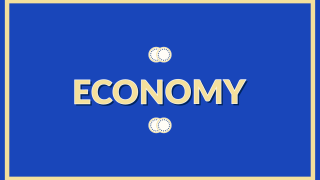Macario Schettino says that Mexicans are poor because they are unproductive. No Mexican in his right mind would dispute this statement. The relevant question is why not convert productivity into the guiding principle of the incoming government’s strategy?
Now that the reforms proposed by the outgoing government are being discussed and there is speculation on what the next one would propose, it is necessary to reflect on why it is imperative to carry out a set of reforms, in diverse ambits. It is also important to elucidate in what, and why, in a developing country the reform process is distinct from that characterizing those that have been transformed throughout centuries.
The greater part of the legal and regulatory, as well as the political, apparatus that characterizes the country stems from the “old regime”, a sociopolitical structure whose characteristics and modi operandi stopped working the moment two radical changes took place: first, chronologically, the opening of the economy and, second, the 2000 political sea change. In retrospect, these two factors redid all of the vectors that made the country work: with these the central control exercised by the presidency and the bureaucracy vanished; the workings of the economy were liberalized; the ability of the president to impose his criteria over each and every issue went away; and above economic and political decisions were decentralized, in the broadest sense of the word.
Expressed in other terms, the reality of power changed radically: from concentration we went to decentralization; from control to atomization and fragmentation; from imposition to the dependence of everything on the capacity and integrity of each of the parts. Wherever one’s eyes alight –on the economy, the state governments, the civil society, on politics in general- the country has undergone a radical transformation in its nature and its power structure.
What didn’t change were the regulatory, legal, and institutional underpinnings. With exceptions –some enormous- we trudge on under the yoke of an institutional and legal structure that has nothing to do with the current reality. Such is the case of the Judiciary and Mexico’s Attorney General, of labor legislation and the energy regime, of the police and the Army. The economy exists within a global environment, but is governed with instruments imbedded in a protected economy; politics possesses huge effervescence and competition but operates under criteria that former president Plutarco Elías-Calles could claim as his own; the society is ever more diverse and engages in experiences that are ever more cosmopolitan, but the regulatory structure under which it lives is antediluvian. The play off between reality and formality is impacting.
The reforms of the eighties and nineties attempted to conciliate, at least partially, the new reality with the existing judicial framework. In some cases this advanced, in others it remained paralyzed. But the main problem of that era resided in the permanent inconsistency among the diverse reforms and privatizations. Instead of following an integral strategy, decisions were made on a case by case basis, many of these inherently contradictory, generating the conditions that led to the crisis of ’94.
Viewed as a whole, the country requires an integral strategy of development. That is, a clear and well defined project that explains where it wants to go and that benefits from coordination among projects. Going back to the eighties, we can observe how the telephone company was privatized (with fiscal income, not competition, as the guiding criteria) nearly simultaneously with approval of the law on matters of competition. The same occurred in the way in which the banks were privatized, the law on foreign investment matters was adopted or the economy was liberalized. In a word, there was never a guiding rod that ensured that the parties were compatible among themselves.
To be successful and avoid these absurdities, the next government should adopt an integral vision and affix to this all of the individual decisions on which it decides to embark. That is, it should not neglect the objective that is proposed and the elements that should be onboard for this to be achieved. The process should ensure compatibility with the global economic reality, above all in themes such as taxes, energy, regulation, competition and the like.
It is clearly very difficult to articulate a great development strategy that integrates all of the elements and factors that characterize the management of a government. In virtue of this, allow me to propose that rather than attempting a grand exercise of Soviet-style central planning, the government presently girding up to initiate functions should adopt a central criterion that guides its actions and, above all, that serves as a compass for guaranteeing that the parties tally with the ultimate objective.
According to the economic scholars, there is an absolute correlation between the rise of productivity and the growth of the economy. Thus, the simplest thing would be to embrace productivity as the guiding principle. Paul Krugman, one of the most critical economists at the moment, affirms that productivity “is not everything, but in the long run is almost everything” because it determines the number and type of jobs that there will be, thus the population’s income. On adopting productivity as the criterion, the president would be able to assess with enormous clarity what contributes and what hinders, therefore what costs are acceptable and which are not. More to the point, it would permit him to put into perspective the relative importance of reforms on certain themes with respect to others because some sectors are infinitely more transcendental in matters of impact on productivity than others.
From the viewpoint of productivity, there is nothing more important than the formation of human capital, the functioning of dispute-solving mechanisms, public safety, the infrastructure, the availability of fuels and the existence of a favorable environment for the growth of innovation and creativity. The great virtue of having a unifying criterion is that it allows for discernment of the costs and benefits of shouldering a conflict with interests committed with the status quo, while at same time would permit identifying opposite numbers and backing.
The “old regime” lived from property rights abuse, from ignoring (and rendering impossible) the rule of law and of imposing presidential preferences. That regime collapsed because it was incapable of adapting to the times and satisfying a growing population. A growing productivity would allow the construction of a new regime, one good for all.
Productivity: Guiding Principle






Comments